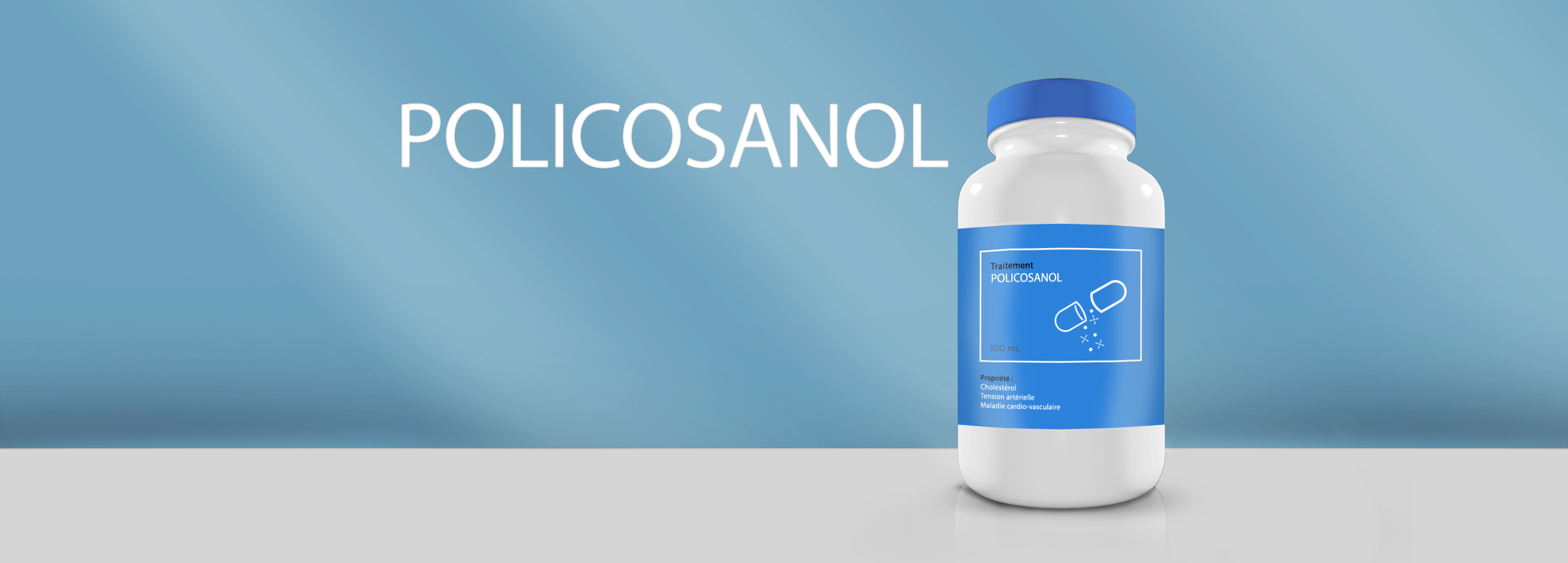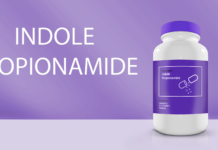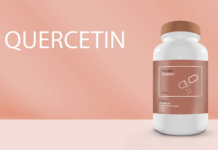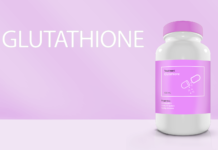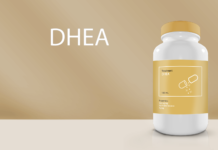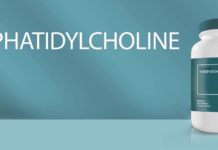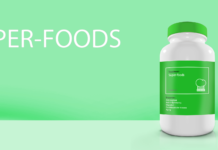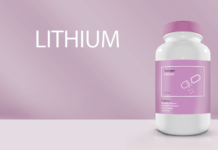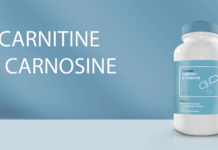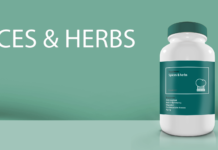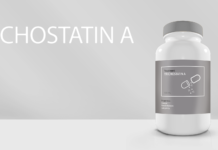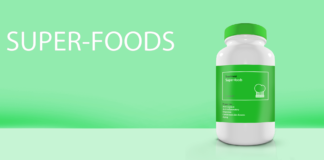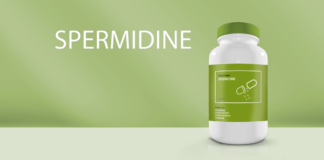![]()
Fact sheet
Fighting aging by acting on lipoprotein
Discovered by Cuban researchers, Policosanol is a mixture of fatty alcohols, most often from sugar cane, which is said to have a role in cholesterol regulation and the prevention of cardiovascular diseases. Several clinical studies [1] show its effect on HDL decrease, although its mechanism of action is not fully clarified, its role in platelet aggregation inhibition and its antioxidant function.
Policosanol in the fight against aging
Studies have shown that daily consumption of policosanol may reduce the occurrence of diseases associated with aging[2]. It would cause functional and structural changes in lipoproteins, which would lower blood pressure, increase the level of “good cholesterol” HDL (High Density Lipoprotein), and decrease the level of “bad cholesterol”, LDL, in the blood[1, 2]. On the other hand, opinions differ as to the effect of Policosanol on triglycerides, an important actor in cardiovascular diseases and atherosclerosis. These properties, similar to those of vitamin C, help fight against cell senescence and partially inhibit glycation[3] (rigidification of blood vessels by the formation of glucose-protein complexes) thus helping the cardiovascular system to remain in good shape over time.
Specifically, one study found that these properties could lead to increased tissue survival. Tests on zebrafish showed that the group that consumed Policosanol for 9 weeks had a survival rate of 80%, compared to 67% for the control group[4]. In addition, this same in vivo study demonstrated that policosanol would enhance cell regeneration. Indeed, injections of the PCO-rHDL complex (policosanol associated with HDL) would be able to induce a tissue regeneration of 94%, whereas injections of HDL alone would bring a regeneration activity of 76%[4].
Finally, other anti-aging effects have been observed after taking policosanol, such as a powerful antioxidant, anti-inflammatory and anti-apoptotic action (apoptosis = programmed cell death)[5].
IMPORTANT NOTE: Not all studies presented have been performed in humans. Those conducted in humans are often monocentric and will have to be confirmed by new research teams during clinical trials.
- Number of clinical studies: 23
- Molecule availability : over the counter
- Route : oral
- Dosage: 5-20 mg/day (more than 3 months of treatment)[2]
Treatment for hypercholesterolemia: The effectiveness of Policosanol in lowering cholesterol appears to have been demonstrated in several studies[6][7]. It would induce an inhibition of cholesterol biosynthesis in liver cells, by activation of AMP-Kinase[8], which would present an alternative to statins in the treatment of hypercholesterolemia[9].
Prevention of cardiovascular disorders: Some studies indicate that Policosanol has an antiplatelet action[10][11], making it possible to prevent the onset of cardiovascular diseases. Taking between 5 and 10 mg/day would then have beneficial effects on cardiovascular function[12].
Treatment of intermittent claudication: Policosanol may also have a vasodilatory effect. By this activity, it would be able to relieve the symptoms of intermittent claudication[13][14].
Neurological Interactions: A study in athletes found that taking 10 mg of policosanol and fish oil daily could reduce reaction time by 20 milliseconds[15]. This treatment could then lead to improved performance.
Precautions for use of policosanol
Side effects: One study in a group of approximately 27,000 people detected side effects in only 86 subjects. Among this sample, the most common effects are weight loss, polyuria, headache, dizziness, insomnia and polyphagia[12].
Few toxic effects: Many studies claim that policosanol would be well tolerated with a daily intake of 5 to 20 mg. A study involving 2252 people over 60 years of age, who were treated between 6 and 36 months, seems to demonstrate the good long-term tolerance of the product[16]. Clinical studies associated with a pharmacological study would prove this absence of toxicity of policosanol[17].
Because of its activity on platelets, policosanol should not be taken in the week before surgery.
[1] Kabir Y., Kimura S. Tissue distribution of (8-14C)-octacosanol in liver and muscle of rats after serial administration. Ann Nutr Metab. 1995;39(5):279-84
[2] Kim, J. et al. Consumption of policosanol enhances HDL functionality via CETP inhibition and reduces blood pressure and visceral fat in young and middle-aged subjects. International Journal of Molecular Medicine. 2017, 39(4):889-899
[3] Kim, S. et al. Consumption of high-dose vitamin C (1250 mg per day) enhances functional and structural properties of serum lipoprotein to improve anti-oxidant, anti-atherosclerotic, and anti-aging effects via regulation of anti-inflammatory microRNA. Food Funct., 2015, 6(11), pp.3604-3612
[4] Lee, E., Yoo, J., Lim, S. and Cho, K. Anti-Aging and Tissue Regeneration Ability of Policosanol Along with Lipid-Lowering Effect in Hyperlipidemic Zebrafish via Enhancement of High-Density Lipoprotein Functionality. Rejuvenation Research, 2016, 19(2), pp.149-158
[5] Lim, S., Yoo, J., Lee, E. and Cho, K. Enhancement of High-Density Lipoprotein Cholesterol Functions by Encapsulation of Policosanol Exerts Anti-Senescence and Tissue Regeneration Effects Via Improvement of Anti-Glycation, Anti-Apoptosis, and Cholesteryl Ester Transfer Inhibition. Rejuvenation Research, 2016, 19(1), pp.59-70.
[6] Gouni-Berthold, I. and Berthold, H. Policosanol: Clinical pharmacology and therapeutic significance of a new lipid-lowering agent. American Heart Journal, 2002, 143(2), pp.356-365
[7] Chen, J. et al. Meta-Analysis of Natural Therapies for Hyperlipidemia: Plant Sterols and Stanols versus Policosanol. Pharmacotherapy, 2005, 25(2), pp.171-183
[8] Mazière, C., Mazière, J., Houtia, N., Lauga, J. and Polonovski, J. Effects of the Antithrombotic Drug Suloctidil on Low Density Lipoprotein Processing and Cholesterol Metabolism in Cultured Human Fibroblasts. Clinical Chemistry and Laboratory Medicine, 1988, 26(1)
[9] Singh, D. Policosanol Inhibits Cholesterol Synthesis in Hepatoma Cells by Activation of AMP-Kinase. Journal of Pharmacology and Experimental Therapeutics, 2006, 318(3), pp.1020-1026
[10] Arruzazabala, M. et al. Antiplatelet effects of policosanol (20 and 40 mg/day) in healthy volunteers and dyslipidaemic patients. Clinical and Experimental Pharmacology and Physiology, 2002, 29(10), pp.891-897.
[11] Arruzazabala ML, Mas R, et al. Effect of policosanol on platelet aggregation in type II hypercholesterolemic patients. Int J Tissue React. 1998, 20(4):119-24.
[12] Janikula M. Policosanol: a new treatment for cardiovascular disease? Altern Med Rev. 2002 Jun;7(3):203-17.
[13] Castano, G. Effects of Policosanol and Ticlopidine in Patients with Intermittent Claudication: A Double-Blinded Pilot Comparative Study. Angiology, 2004, 55(4), pp.361-371.
[14] Castano, G. et al. A Long-Term Study of Policosanol in the Treatment of Intermittent Claudication. Angiology, 2001, 52(2), pp.115-125.
[15] Irmak, S. and Dunford, N. Policosanol Contents and Compositions of Wheat Varieties. Journal of Agricultural and Food Chemistry, 20015, 53(14), pp.5583-5586
[16] Mesa, A. et al. Toxicity of policosanol in beagle dogs: one-year study. Toxicology Letters, 1994, 73(2), pp.81-90
[17] Fernández, S. et al. A pharmacological surveillance study of the tolerability of policosanol in the elderly population. The American Journal of Geriatric Pharmacotherapy, 2004, 2(4), pp.219-229.
Katidja Allaoui

Author
Auteure
Katidja studied biology and health engineering at the school of engineering of Angers.
More about the Long Long Life team
Katidja a étudié l’ingénierie de la biologie et de la santé à l’école d’ingénieurs de l’université d’Angers.
En savoir plus sur l’équipe de Long Long Life


